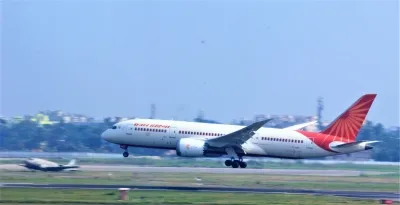Did DGCA Order Airlines to Inspect Fuel Switches of Boeing Planes After Air India Crash Report?

Synopsis
Key Takeaways
- DGCA mandates checks on fuel switches of Boeing planes.
- Air India crash report revealed critical issues with engine fuel supply.
- Some airlines, like Emirates, are proactively inspecting their aircraft.
- The FAA reassured that Boeing's fuel switch designs are safe.
- Safety protocols are being enhanced across the aviation industry.
New Delhi, July 14 (NationPress) The Directorate General of Civil Aviation (DGCA) has mandated airlines to conduct checks on the locking mechanism of the fuel control switches on their Boeing aircraft. This decision follows the preliminary investigation report concerning last month’s devastating Air India Boeing Dreamliner crash in Ahmedabad, resulting in the tragic loss of 260 lives.
A significant finding from the preliminary report by the Air Accidents Investigation Bureau highlighted that the twin engines of the unfortunate Boeing aircraft shut down mere seconds after take-off due to the fuel supply being interrupted.
Concerns were raised regarding the aircraft’s engine fuel cutoff switches, which shifted from ‘Run’ to ‘Cutoff’ just 3 seconds post take-off.
The cockpit voice recordings from the ill-fated flight captured a conversation where one pilot questioned, “Why did you cut off?” and the response was, “I didn’t.”
The AAIB report also referenced a 2018 bulletin from the FAA that warned of potential issues with the fuel control switches, produced by Honeywell in the US, affecting several Boeing models, including the 737s, which utilize the same switches.
The bulletin suggested that airlines operating various Boeing models, including the Dreamliner, should inspect the locking mechanism of the fuel cut-off switches; however, such checks were reportedly not conducted by Air India, as they deemed them as “advisory” rather than “mandatory” according to the AAIB report.
Following the Air India incident, some airlines, including Emirates, which also operate Boeing aircraft, are proactively inspecting the fuel switch locking mechanisms as part of enhanced safety protocols.
Meanwhile, the FAA has assured civil aviation authorities globally that the design of fuel control switches, including the locking feature in Boeing planes, remains safe, stating that no airworthiness directive is currently required for Boeing operators.









